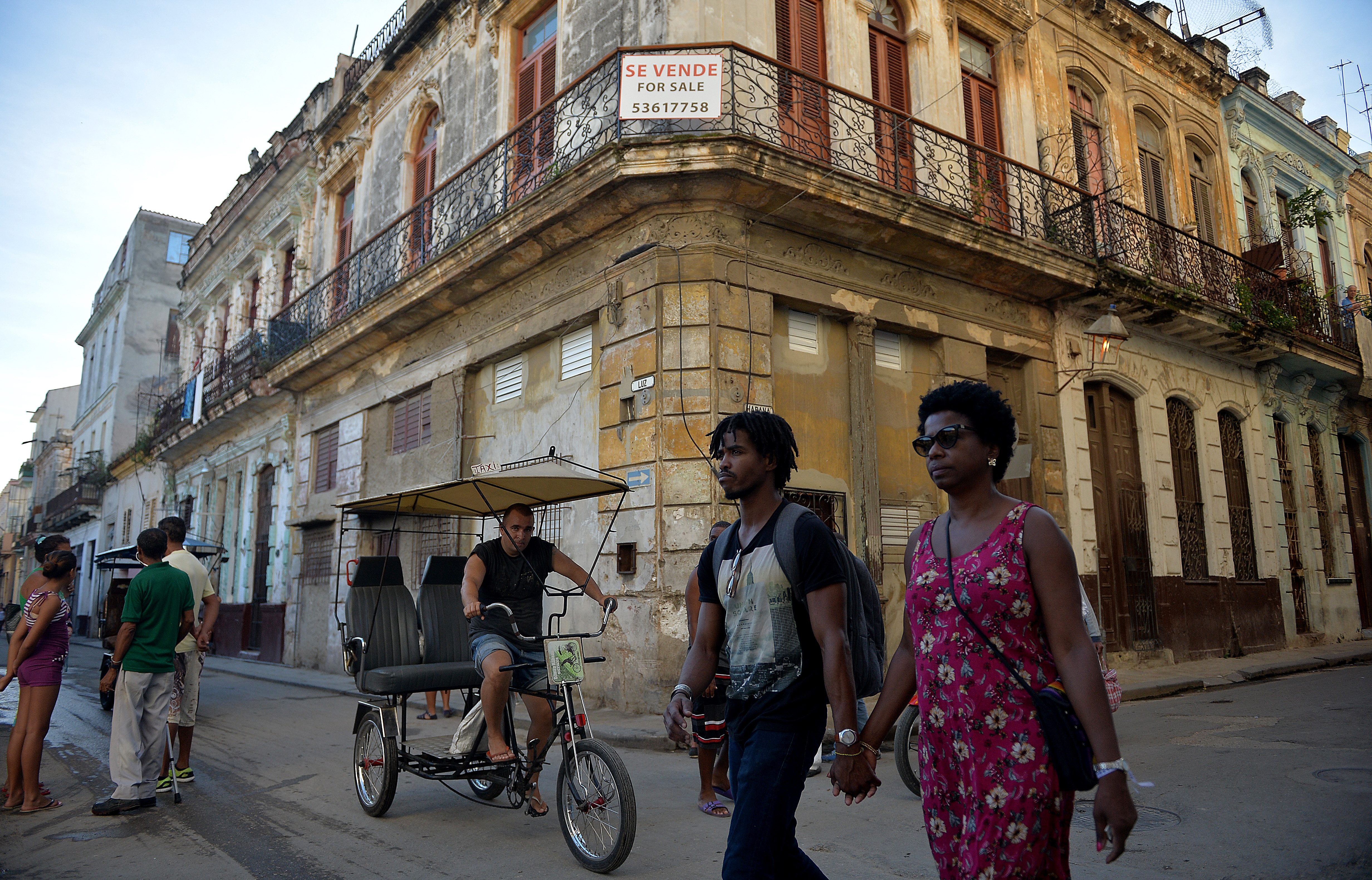US steps up Cuba pressure, mulls property lawsuits
People walk past a building for sale in Havana, Cuba, as US Secretary of State Mike Pompeo warned foreign businesses to steer clear of formerly private properties seized by the island nation (YAMIL LAGE)
Washington (AFP) – US Secretary of State Mike Pompeo warned foreign businesses Wednesday to steer clear of formerly private properties seized by Cuba — and said he was considering allowing lawsuits over such assets in US courts.
Pompeo said he was reviewing whether to move forward on a section of a 1996 law that would allow Cuban exiles to sue both private companies and Cuba itself for profiting on properties nationalized after Fidel Castro’s 1959 communist revolution.
US administrations have systematically used their authority to delay implementation of the measure every six months — but Pompeo said he was issuing a suspension for only 45 days.
Pompeo said in a statement that US President Donald Trump’s administration would conduct a “careful review” over the period, which will begin on February 1.
The administration will look at “efforts to expedite a transition to democracy in Cuba and include factors such as the Cuban regime’s brutal oppression of human rights and fundamental freedoms and its indefensible support for increasingly authoritarian and corrupt regimes in Venezuela and Nicaragua,” he said.
“We call upon the international community to strengthen efforts to hold the Cuban government accountable for 60 years of repression of its people,” he added.
“We encourage any person doing business in Cuba to reconsider whether they are trafficking in confiscated property and abetting this dictatorship.”
– Sharp reversal from Obama era –
The warning was another sharp reversal from the policies of former president Barack Obama, who normalized relations with Cuba and said decades of US policy to overthrow the communist leadership had failed.
Even before Obama’s reconciliation drive, successive US administrations determined that allowing lawsuits over property would jeopardize key relationships as European allies and Canada have invested widely in Cuba.
The European Union lodged protests and complained to the World Trade Organization after the 1996 passage of the Helms-Burton law, also known as the Libertad Act, which authorized the property lawsuits in US courts as one part of an expansion of the existing US embargo on Cuba.
The law was spearheaded by far-right Republican senator Jesse Helms and congressman Dan Burton after Cuba in 1996 shot down two aircraft flown by exiled Cuban activists.
The US-Cuba Trade and Economic Council, which supports American business in the Caribbean island, said Pompeo’s move was calculated to “create uncertainty and, thus, anxiety.”
The 45-day suspension “presents a likelihood of an ominous commercial, economic and political landscape” for Cuba, the European Union and all WTO members, said the council’s president, John Kavulich.
In a speech to anti-Castro Cuban exiles in Miami after taking office in 2017, Trump called Obama’s policies “terrible and misguided” and declared: “We now hold the cards.”
While not reversing all of Obama’s sanctions relief, Trump kept in place previous restrictions on US citizens’ travel and business dealings in Cuba.
Pompeo earlier presented Cuba with an open letter to demand that it explain the detention of eight people considered by Washington to be political prisoners.
Trump has shown himself willing to move ahead with actions that cause controversy on the world stage. He earlier ended years of White House waivers on congressional action and moved the US embassy in Israel from Jerusalem.
Disclaimer: This story is published from a syndicated feed. Siliconeer does not assume any liability for the above story. Validity of the above story is for 7 Days from original date of publishing. Content copyright AFP.


